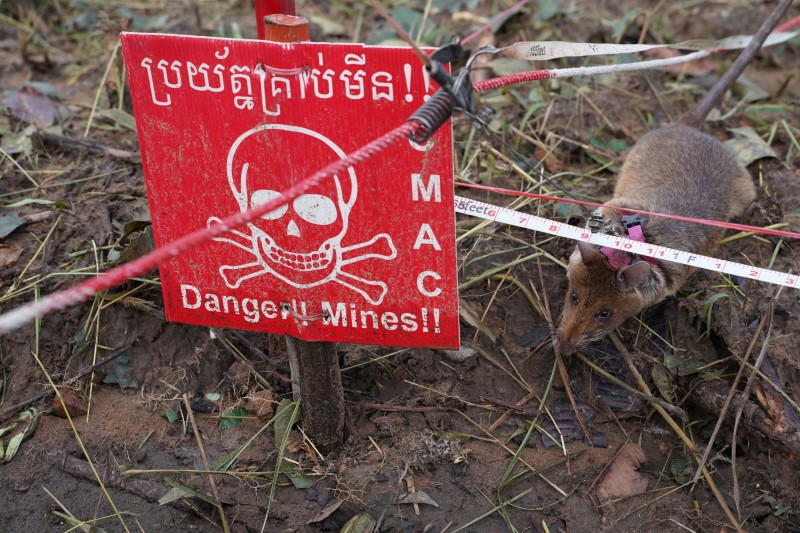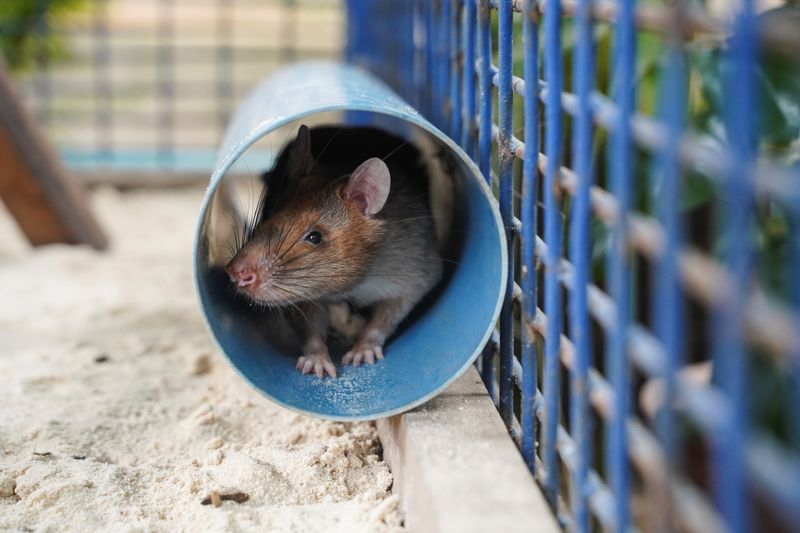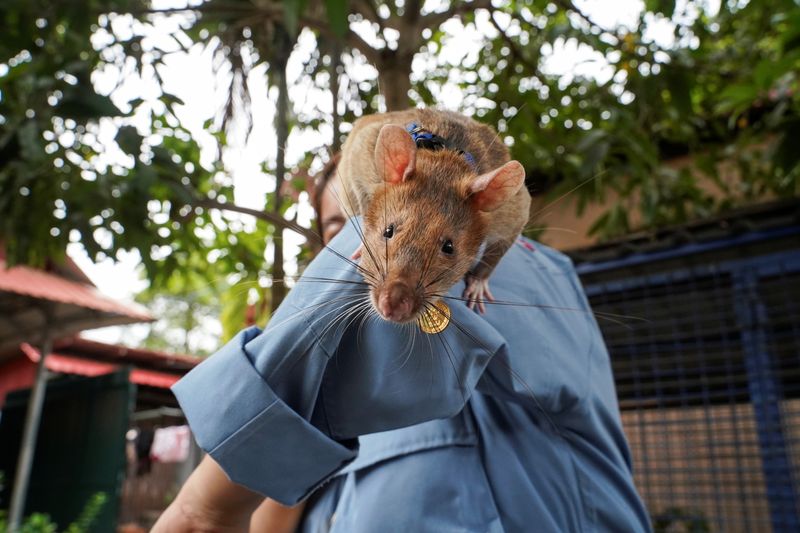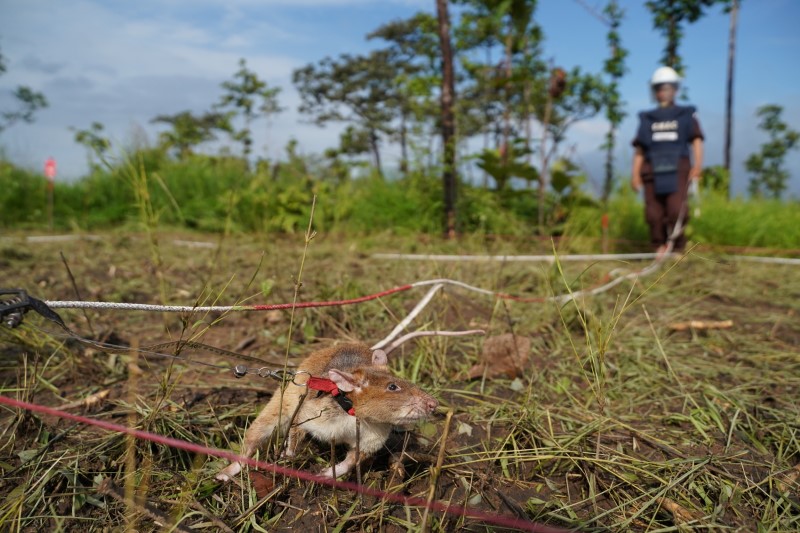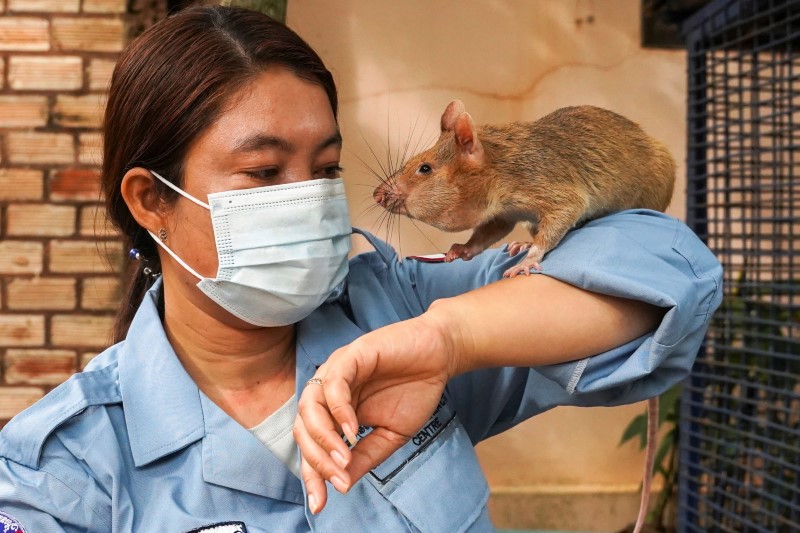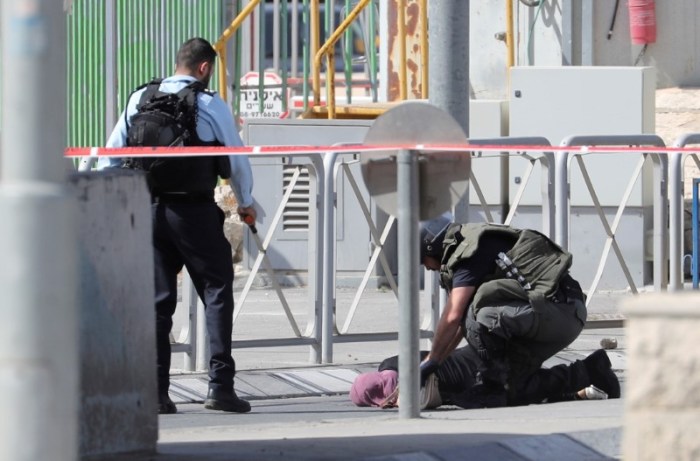(This June 11 story fixes spelling in paragraph 1 of ordnance and corrects UXO found in paragraph 7 to 38, not 28; also clarifies the use of rats to diagnose TB in paragraph 7)
PREAH VIHEAR, Cambodia (Reuters) – Cambodia has deployed its next generation of rat recruits to sniff out landmines as part of efforts to boost de-mining operations in a country plagued for decades by unexploded ordnance (UXO).
Twenty African giant pouched rats were recently imported from Tanzania and have undergone intense training.
“They are all easy to work with and they don’t care about who their handlers are,” said handler So Malen, during an exercise on Friday for seven recruits in Preah Vihear province, bordering Thailand.
“Any one of us can be their handler and most importantly, they don’t bite.”
Scarred by decades of civil war, Cambodia is one of the world’s most heavily landmined countries, with more than 1,000 sq km (621 sq miles) of land still contaminated.
It has among the highest number of amputees per capita, with more than 40,000 people losing limbs to explosives.
The new rat batch replaces a recently retired group that includes Magawa, who found 71 landmines and 38 UXO during his five-year career, according to APOPO, an international organisation that specialises in using rats to detect landmines and tuberculosis.
Magawa received a gold medal last year from Britain’s People’s Dispensary for Sick Animals for “lifesaving bravery and devotion to duty”.
Handler So Malen said the rats have an extraordinary sense of smell that guarantees results, and that all that separated them was their work rate.
“The small difference is that Magawa is a hero rat who worked faster than others,” So Malen said.
(Reporting by Chantha Lach; Writing by Joseph Campbell and Martin Petty; Editing by Mike Collett-White)

